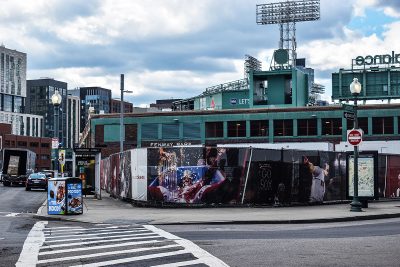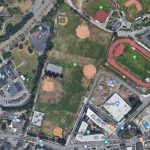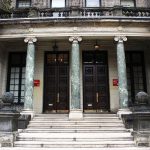
A Boston University researcher created a new initiative this semester to research the health impacts of noise on Boston-area neighborhoods.
Erica Walker, a postdoctoral associate in the School of Public Health who started researching city noise levels in 2015, said she created the Community Noise Lab due to public interest that pushed her to share her findings with the people they affect.
“I was out doing my dissertation research and I was measuring sound [and] I just remember people in the city would come up to me and ask me, ‘What are you doing?’” Walker said. “Through those conversations with people in the community, I realized that it was going to be important to follow up on these questions they were asking me.”
The Community Noise Lab collaborates directly with the communities affected by noise pollutants, according to their website. The lab said its approach is unique amongst academic research labs.
Walker said this method forces innovative and accurate research from start to finish and calls the approach “ride-sharing science.”
“I’m ultimately interested in how sound impacts our health, but I’m going to pick up these different passengers along the way who have their own journeys that they are interested in,” Walker said. “They may ride with me till the end or they may get off at the next stop, but we’re all going towards a similar destination.”
The lab aims to work with communities across New England such as Portland, Maine, as well as a variety of neighborhoods in the Boston area including Fenway, Mission Hill, East Boston and Chelsea that experience different types of noise pollution, according to the Community Noise Lab website.
Data gathered from the Fenway area shows how noise pollution from recent summer concerts and construction projects in Fenway Center, a mixed-use development, affects living environment.
In Mission Hill, the effects of sound levels from emergency vehicles and helicopters are being monitored due to the neighborhood’s close proximity to the Longwood Medical area.
Walker developed an app called NoiseScore alongside Radcliffe Institute for Advanced Studies at Harvard University and BUild Lab at BU that allows users to record noise levels in their surroundings.
“They can record the sound level and answer a short series of questions about how that sound makes them feel. We take that data and we upload it to a live map,” Walker said. “It was really me grappling with how can I create a dynamic record of what’s going on with noises in our neighborhood.”
To supplement the data gathered from the app, each of these neighborhoods also has sound stations set up to monitor any noise effects not captured by the app.
Tanaya Wagh, a freshman in the College of Arts and Sciences, said she was intrigued by the lab’s research and is interested in seeing the end results.
“It’s so weird because we always just think about the negative impacts of physical things like air pollution,” Wagh said. “ [I] never thought about something as common as noise in that way.”
David Winner, a freshman in CAS, said the app is an innovative way to handle this issue.
“Modern problems require modern solutions. That’s what it strikes me as,” Winner said. “We need innovative approaches to look at things in a new light and make observations that haven’t been made before. She might just be onto something.”












